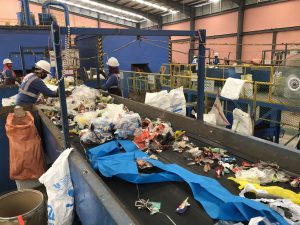

1 Business
Recycling of waste plastic
2 Country, region (city, etc.)
The Republic of the Philippines (Metro Cebu )
3 Contribution to SDGs
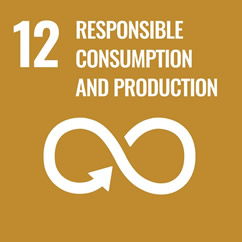
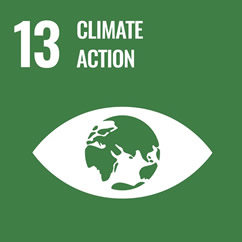
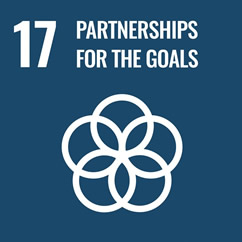
4 Project Results
(1)Urban issues
In Metro Cebu, waste plastic processing is one of the major urban issues. As its population increases and its economy develops, its waste emissions are drastically increasing and the area does not have a sustainable system to collect and process its waste. For this reason, at final disposal sites, waste including plastics is piled up and the capacity of final disposal sites is constantly lacking. Additionally, disposed waste plastics frequently become stuck in the drainage system, so whenever it rains, flooding and inundation occurs throughout the Metro Cebu.


(2)Urban solutions by GUUN Co., Ltd.
GUUN Co., Ltd. (hereinafter GUUN) manufactures fluff fuel from waste plastics. Fluff fuel is plastic fuel that acts as a substitute for coal in boiler facilities etc. The company sells the produced fluff fuel to a cement company in Cebu, achieving a recycling economy.
In 2017, a waste plastic recycling plant was completed in Consolacion in Cebu.

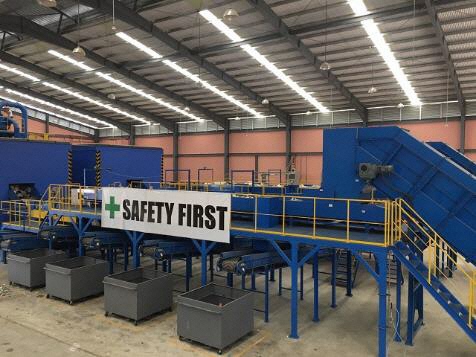


The fluff fuel manufactured by GUUN is supplied to a major cement company in Cebu. In April 2019, the cement company and GUUN concluded an agreement so that GUUN can supply a stable volume of fluff fuel within Cebu.

In 2018, Mandaue City enacted an ordinance to separate the collection of waste from the city (mainly that collected from households by the municipality) into four types: biodegradable, recyclable, residual, and special waste. The city was operating municipal final disposal sites for its residual waste. However, due to environmental reasons, the disposal sites were to be closed and there was therefore an urgent need to reduce the volume of its residual waste.

In August 2018, at its general assembly meeting, Mandaue City Council approved the processing of its urban waste at GUUN’s plant, and in September, the city and the company signed an agreement.

By promoting awareness among Mandaue citizens about the separate collection of waste and by employing workers to sort the waste in each barangay, in January 2019, the area for waste collection was expanded to 27 barangays. In 2019, the plant collected 1,559 tons of waste plastic and recycled about 86% (1,334t/year) into fluff fuel.
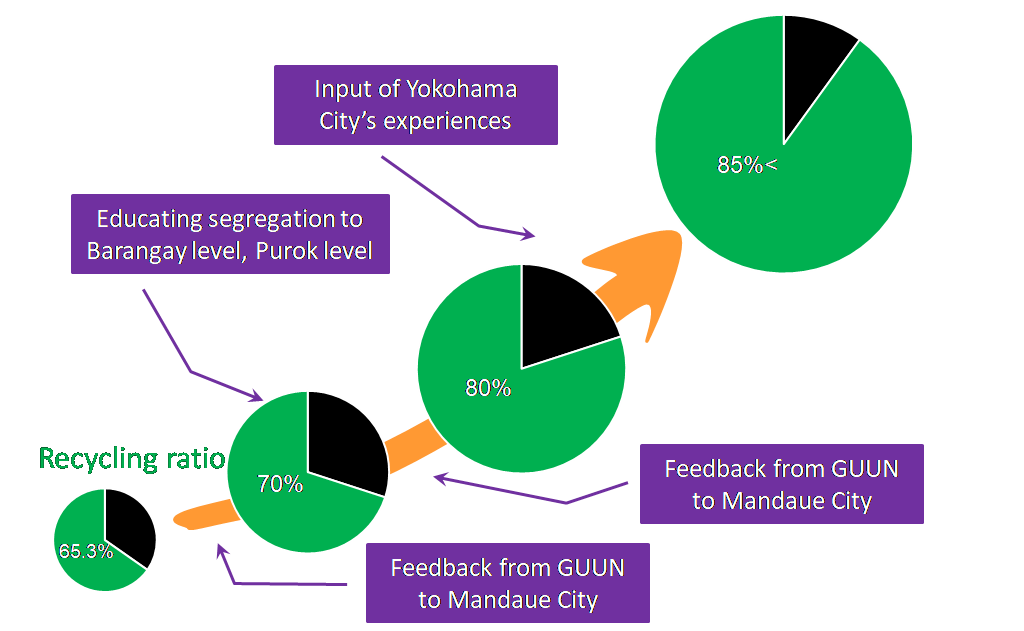
GUUN is aiming to solve the waste issue by making efforts to expand the recycling system to neighboring municipalities and to the whole Metro Cebu area.
In February 2020, at the Metro Cebu Urban Development Forum co-hosted by the City of Yokohama and Metro Cebu Development and Coordinating Board (MCDCB), the company presented its achievements at the recycling plant. After the presentation, many municipal personnel participated in a tour to visit the plant. Consequently, it is expected that the recycling system will expand to neighboring municipalities.
The cooperation between Mandaue City and GUUN Co., Ltd. and their achievements have been capturing the attention of international organizations. In October 2018, the 11th 3R Conference for Asian Local Governments was held in Mandaue City at which many efforts in respect of waste separation and recycling were presented. In December 2019, Mandaue City was invited to a training event in Japan hosted by the Asian Development Bank Institute (ADBI).
(3) Effects of this project
GUUN Co., Ltd. has established the recycling of waste plastic into fuels and now plays an important role in a recycling business in Metro Cebu. It is expected that the business will bring social effects such as 1) the selection and collection of waste, 2) the proper processing of waste, and 3) a reduction in landfill waste, as well as lead to the mitigation of the ocean plastic waste issue. At the same time, it is contributing to the measures being taken against global warming. As an example, if the plant produces 50 tons of fluff fuel per day, and the cement company uses the fluff fuel instead, it is estimated that CO2 emissions can be reduced by approximately 11,300 tons per year. This equates to a reduction of 4,170 kiloliters in light oil, which is equivalent to 209 tank lorries.
GUUN’s business is creating jobs in Cebu. The company hires and trains managers and workers in the area. Furthermore, the company’s active exchanges with local community are contributing to enhancing environmental awareness among citizens.
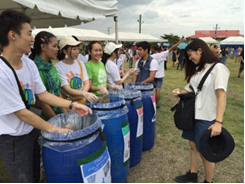
5 References
Ministry of Foreign Affairs
The Ministry of Foreign Affairs created a video to introduce Japan’s worldwide projects to solve the ocean waste plastic issue in developing countries and GUUN’s efforts in Metro Cebu were also introduced.
